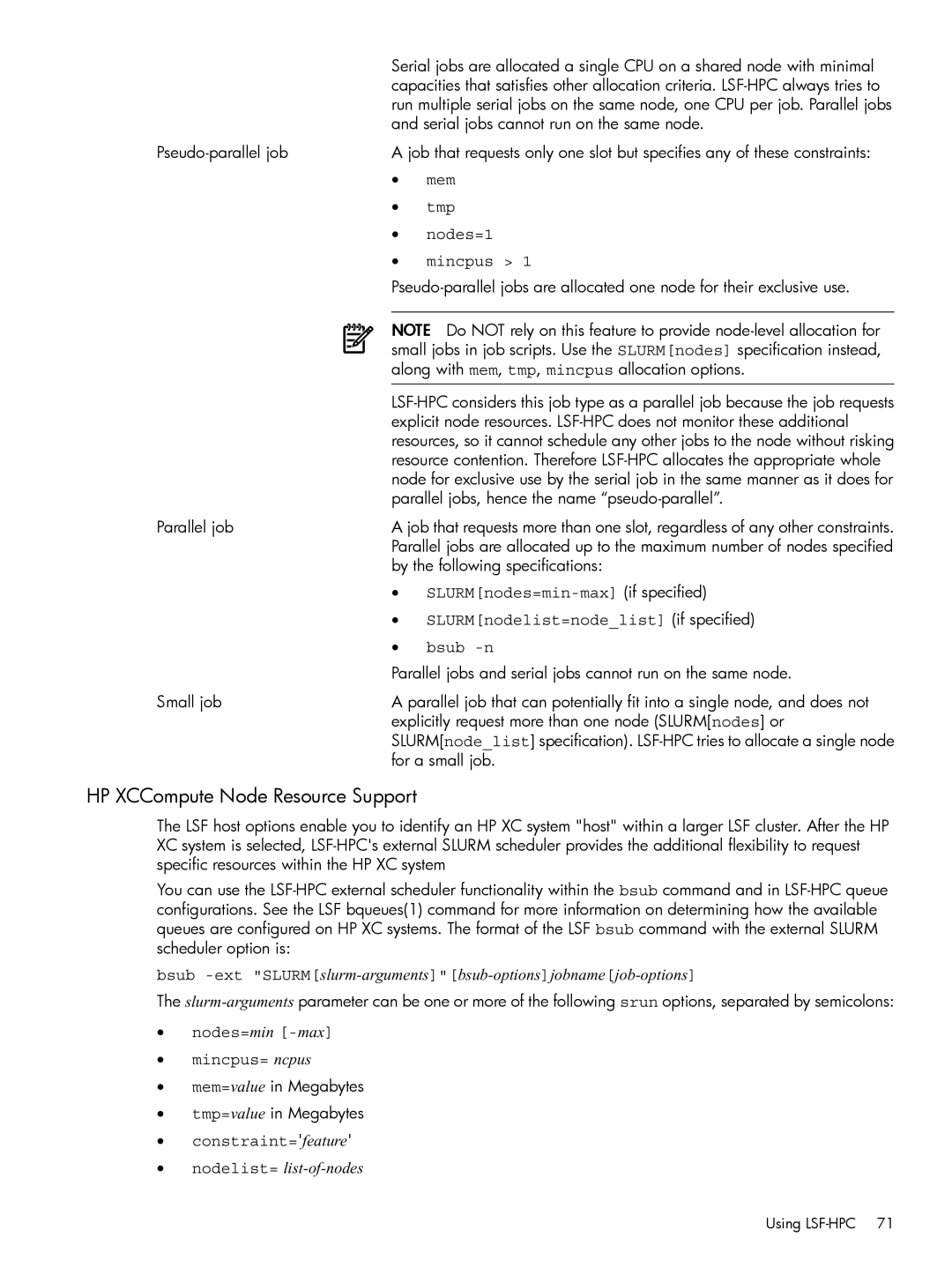
Serial jobs are allocated a single CPU on a shared node with minimal capacities that satisfies other allocation criteria.
|
| A job that requests only one slot but specifies any of these constraints: | ||
|
|
| • | mem |
|
|
| • | tmp |
|
|
| • | nodes=1 |
|
|
| • | mincpus > 1 |
|
|
| ||
|
|
| NOTE Do NOT rely on this feature to provide | |
|
|
| ||
|
|
| small jobs in job scripts. Use the SLURM[nodes] specification instead, | |
|
|
| ||
|
|
| along with mem, tmp, mincpus allocation options. | |
|
|
| ||
|
|
| explicit node resources. | |
|
|
| resources, so it cannot schedule any other jobs to the node without risking | |
|
|
| resource contention. Therefore | |
|
|
| node for exclusive use by the serial job in the same manner as it does for | |
|
|
| parallel jobs, hence the name | |
Parallel job |
|
| A job that requests more than one slot, regardless of any other constraints. | |
|
|
| Parallel jobs are allocated up to the maximum number of nodes specified | |
|
|
| by the following specifications: | |
|
|
| • | |
|
|
| • SLURM[nodelist=node_list] (if specified) | |
|
|
| • | bsub |
|
|
| Parallel jobs and serial jobs cannot run on the same node. | |
Small job |
|
| A parallel job that can potentially fit into a single node, and does not | |
|
|
| explicitly request more than one node (SLURM[nodes] or | |
|
|
| SLURM[node_list] specification). | |
|
|
| for a small job. | |
HP XCCompute Node Resource Support
The LSF host options enable you to identify an HP XC system "host" within a larger LSF cluster. After the HP XC system is selected,
You can use the
bsub -ext "SLURM[slurm-arguments]"[bsub-options]jobname[job-options]
The
•nodes=min
•mincpus= ncpus
•mem=value in Megabytes
•tmp=value in Megabytes
•constraint='feature'
•nodelist=
Using
